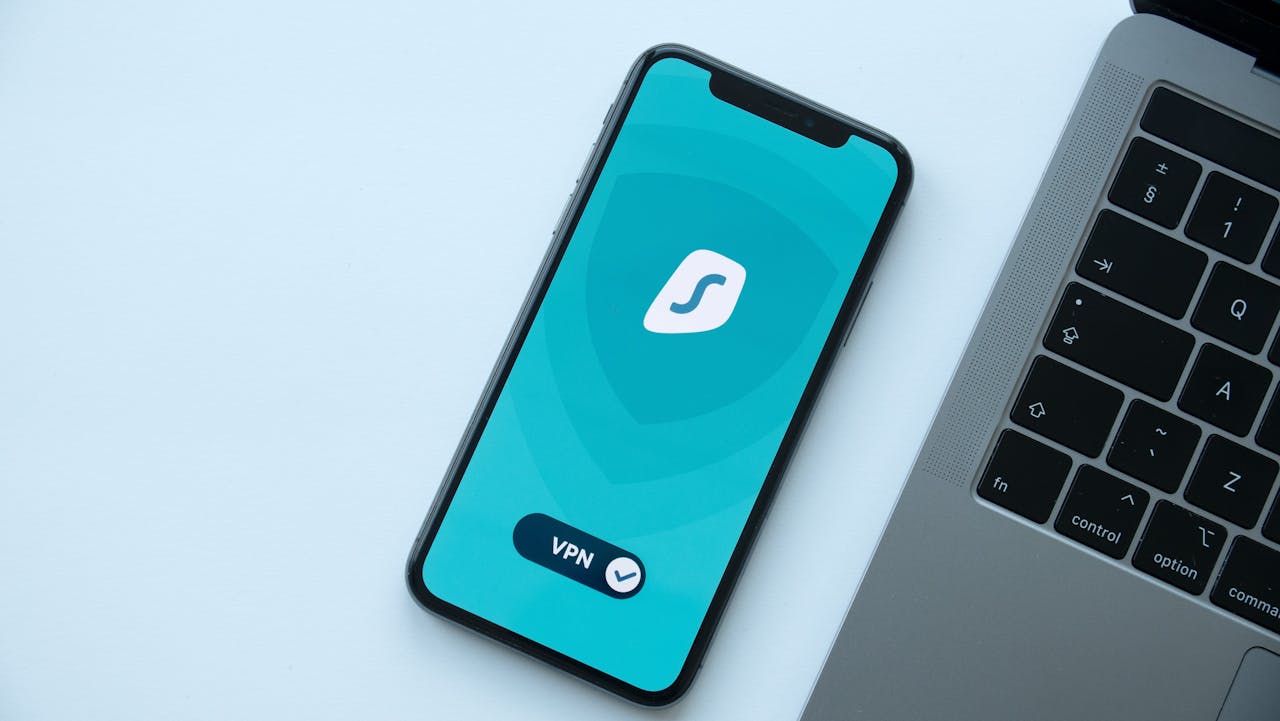Best VPN in Switzerland
When it comes to choosing the best VPN in Switzerland, several factors come into play, including security, privacy, speed and the ability to bypass geo-restrictions. Providers such as Switzerland-based ProtonVPN are popular for their no-logging policy and strict adherence to privacy. Other services such as NordVPN or ExpressVPN also offer solid performance and global coverage. The choice of VPN depends on your specific needs, be it for streaming, security or online anonymity.

Who are the leading VPNs in Switzerland
Here is a list of the most important VPN providers :
NordVPN: Robust security, high speeds, a large server network, and advanced features. Surfshark: Unlimited simultaneous connections and excellent value for money. ExpressVPN: Outstanding speed, reliability, and compatibility with streaming platforms. CyberGhost: Ideal for streaming, user-friendly interface, and optimized servers. ProtonVPN: Based in Switzerland, with a strong privacy policy and a solid free plan. These VPNs are valued for their security, speed, and privacy protection.

Trustpilot 4.2
From €2.19 per month
Commitment from 1 to 24 months

Trustpilot 4.2
From €3.09 per month
Commitment from 1 to 24 months

Trustpilot 4.2
From €2.19 per month
Commitment from 1 to 24 months

Trustpilot 2.2
From €4.49 per month
Commitment from 1 to 24 months

Trustpilot 4.3
From €7.74 per month
Commitment from 1 to 24 months
Our opinion on NordVPN
NordVPN, the world’s leading VPN provider, is a robust solution ideal for those seeking maximum security, high speed, and extended access to restricted content. However, the price may be a barrier for some users, and occasional slowdowns may occur depending on the server selected. Advantages: Enhanced security and privacy: NordVPN uses AES-256 encryption, a military-grade standard, and offers additional features like Double VPN (which encrypts your data twice) and ad/malware blocking. Its no-logs policy has been verified through external audits, ensuring genuine confidentiality. Performance and speed: Thanks to its large network of over 5,500 servers in 60 countries, NordVPN generally provides very high speeds—even for HD streaming or large P2P downloads. Access to geo-restricted content: NordVPN is excellent at bypassing geo-blocks, allowing access to Netflix, BBC iPlayer, Disney+, and other services from anywhere. This makes it a popular choice for users wanting access to region-specific content. User-friendly interface and multi-platform support: With intuitive apps for Windows, macOS, iOS, Android, and browser extensions, NordVPN is easy to use for all experience levels. It also supports up to six simultaneous connections, convenient for protecting multiple devices. Disadvantages: Higher cost: Compared to some competitors, NordVPN’s subscriptions are more expensive, especially on a monthly basis. However, it does offer attractive discounts for long-term plans. Occasional performance issues: While speeds are generally good, some users may experience slowdowns or connection problems with overloaded or distant servers. No free version: Unlike other VPNs that offer a free version or extended free trial, NordVPN only provides a 30-day money-back guarantee, which may be a drawback for users who prefer to test before committing.
Our opinion on Surfshark
Surfshark is an attractive VPN solution for those looking for a comprehensive service at an affordable cost, offering advanced security features and unlimited connections. As such, Surfshark provides excellent value for money — in fact, it’s the service we use daily and are very satisfied with. Detailed advantages: Unlimited simultaneous connections: Surfshark stands out by allowing an unlimited number of devices to connect with a single subscription, which is particularly useful for families or users with many devices. Security and privacy: It uses AES-256 encryption, protects against DNS leaks, and offers features like Camouflage Mode (which hides VPN usage) and MultiHop, which enhances security by routing traffic through multiple servers. Advanced features: Includes CleanWeb, which blocks ads, malware, and trackers. The "NoBorders" mode allows users to bypass internet restrictions in censored countries. These tools improve both security and the overall user experience. Attractive pricing: Surfshark offers very competitive pricing, especially for long-term subscriptions, making it an excellent value for those seeking reliable VPN protection without overspending. User-friendliness: Surfshark apps are intuitive, compatible with all major platforms (Windows, macOS, Android, iOS, Linux, etc.), and feature a simple interface suitable for users of all experience levels. Detailed disadvantages: Less extensive server network: With around 3,200 servers in over 100 countries, Surfshark has a smaller server network compared to larger competitors like NordVPN, which may limit options for users needing specific locations or broader coverage. Inconsistent speed: Performance may vary depending on the distance to the chosen server or network congestion. Users might occasionally experience slowdowns, especially when connecting to distant servers. Customer support: Although 24/7 live chat support is available, response times can sometimes be slow, and resolving complex issues may be less efficient than with other premium VPN providers.
Our opinion on ProtonVPN
ProtonVPN is an excellent choice for users who prioritize privacy and security, particularly thanks to its strict no-logs policy and its headquarters in Switzerland. It is a recommended option for those looking for a high-quality free VPN or specific privacy-focused features. However, performance may vary by server, and the cost of premium plans may not suit all budgets. Detailed advantages: Enhanced security and privacy: ProtonVPN is based in Switzerland, a country with strong privacy protection laws. It uses AES-256 encryption and enforces a strict no-logs policy, ensuring maximum confidentiality. Its Secure Core feature routes traffic through multiple secure servers, reducing surveillance risks. High-quality free offering: ProtonVPN offers a free version that, unlike many other free VPNs, does not impose bandwidth limits, although access is limited to a few servers. This is ideal for users on a budget seeking basic protection. Servers optimized for specific uses: ProtonVPN includes specialized servers for P2P, Tor network usage, and other activities requiring enhanced security. This makes it a relevant choice for privacy-conscious users seeking customizable options. Detailed disadvantages: More limited server network: Compared to competitors like NordVPN or ExpressVPN, ProtonVPN has fewer servers, which may limit connection options and affect speed for some users. Variable speeds: While ProtonVPN offers solid performance on premium servers, speeds can fluctuate, especially on free or overloaded servers, potentially affecting streaming or download quality. Cost of premium plans: ProtonVPN’s paid subscriptions may appear more expensive than those of some other VPN providers, especially for users seeking a comprehensive plan with advanced features.
Our opinion on ExpressVPN
ExpressVPN is a top-tier choice for users seeking optimal security, high speeds, and reliable geo-restriction bypassing. Its user-friendly interface and compatibility with a wide range of devices make it a versatile solution for most users. However, its high price and limited number of simultaneous connections may not suit everyone, especially those looking for very specific features or a more budget-friendly option. Detailed advantages: Top-level security: ExpressVPN offers strong protection with AES-256 encryption and modern security protocols such as Lightway, ensuring safe browsing. It also adheres to a strict no-logs policy, safeguarding your data’s confidentiality. Excellent performance: With over 3,000 servers in 94 countries, ExpressVPN is one of the fastest VPNs available. It maintains high speeds even during bandwidth-intensive activities like HD streaming, online gaming, and P2P downloading. Wide compatibility and ease of use: ExpressVPN provides apps for nearly all operating systems (Windows, macOS, iOS, Android, Linux) and browser extensions. Its interface is simple and intuitive, making it accessible even to beginners. It also supports routers, smart TVs, and gaming consoles. Effective unblocking of restricted content: It excels at bypassing geo-blocks on streaming platforms such as Netflix, Hulu, BBC iPlayer, Amazon Prime Video, and Disney+, making it a great choice for users wanting access to global content. Detailed disadvantages: High cost: ExpressVPN is one of the most expensive VPNs on the market. Its monthly fees are higher than many competitors, and while discounts are available for long-term plans, it remains a significant investment. Simultaneous connection limit: The number of simultaneous connections is limited to five devices per account, which may not be enough for families or users with multiple devices to protect. Missing features: Unlike some competitors, ExpressVPN does not offer advanced features such as Double VPN (which encrypts data over two servers) or a built-in ad blocker, which may disappoint users seeking those tools.
Our opinion on CyberGhost VPN
CyberGhost VPN is a solid option for those looking for a user-friendly VPN that is especially well-suited for streaming and downloads. It offers good server coverage and reliable security. However, advanced users might find its customization options limited, and connection speeds may occasionally vary. Detailed advantages: User-friendliness: CyberGhost is highly accessible thanks to its intuitive and easy-to-use interface, ideal for beginners. It provides apps for all major platforms and includes pre-configured profiles for specific uses (streaming, torrenting, etc.). Streaming and torrenting-optimized servers: Offers dedicated servers for specific platforms like Netflix, Hulu, and BBC iPlayer, making access to geo-restricted content easier. Large server coverage: With over 9,000 servers in more than 90 countries, it offers broad coverage and a wide range of connection options. Strong security: Uses AES-256 encryption, includes an automatic kill switch, and keeps no activity logs, ensuring user privacy. Detailed disadvantages: Variable speed: Performance can vary depending on the server, especially based on its distance or load. High monthly cost: The price for a monthly subscription is relatively high, though long-term plans come with discounts. Fewer customization options for advanced users: Compared to some other VPNs, CyberGhost offers fewer advanced features, which may be disappointing for experienced users.




